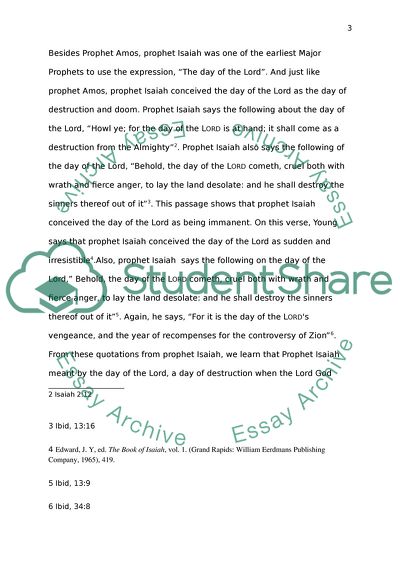Cite this document
(Day of the Lord Essay Example | Topics and Well Written Essays - 3500 words, n.d.)
Day of the Lord Essay Example | Topics and Well Written Essays - 3500 words. https://studentshare.org/religion-and-theology/1825314-day-of-the-lord
Day of the Lord Essay Example | Topics and Well Written Essays - 3500 words. https://studentshare.org/religion-and-theology/1825314-day-of-the-lord
(Day of the Lord Essay Example | Topics and Well Written Essays - 3500 Words)
Day of the Lord Essay Example | Topics and Well Written Essays - 3500 Words. https://studentshare.org/religion-and-theology/1825314-day-of-the-lord.
Day of the Lord Essay Example | Topics and Well Written Essays - 3500 Words. https://studentshare.org/religion-and-theology/1825314-day-of-the-lord.
“Day of the Lord Essay Example | Topics and Well Written Essays - 3500 Words”. https://studentshare.org/religion-and-theology/1825314-day-of-the-lord.


